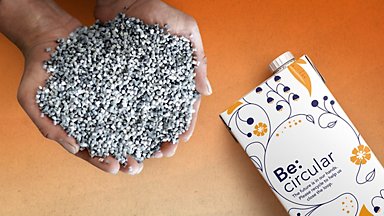Go nature. Go carton.
OVERVIEW ACTIONS SUSTAINABLE SOLUTIONS EXPLORE
Why renewable materials are fundamental to sustainable food packaging
Much of the food packaging available today is made of fossil-based virgin plastic. Using renewable materials can help reduce the carbon footprint of packaging, by minimising the need for fossil-based materials.
Our paper-based carton packaging is made up of 70% paperboard on average, a renewable material when responsibly sourced. And our plant-based portfolio featuring plant-based plastics is growing every year.
To help ensure that we meet all criteria for protecting biodiversity and natural environments when sourcing renewable materials, we use voluntary certification standards, such as the Forest Stewardship Council™ (FSC™ C014047) and Bonsucro1.
Focusing on a fully renewable aseptic carton package
As a key part of developing the world’s most sustainable food package2, we are working on increasing the share of renewable materials in our carton packages.
An important step is to substitute the aluminium foil in our aseptic packages with a renewable solution which both protects the food product and helps the sealing of the aseptic package. Our strategy is to do it in two steps: The first step is to move away from fossil fuel-based materials; the second step is to introduce a fibre-based material coming from renewable sources.
2 This means creating cartons that are fully made of renewable or recycled materials, that are responsibly sourced, thereby helping to protect and restore our planet's climate, resources and biodiversity; contributing towards carbon-neutral production and distribution; are convenient and safe, therefore helping to enable a resilient food system; and are fully recyclable.





